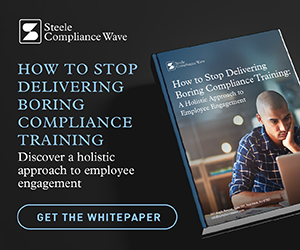Three and a half weeks ago, my Sunday afternoon started beautifully. The sun was out and my family and some friends found a softball field in a town park and took it over. My team was at bat. We weren’t winning yet, but we were going to be. There was one out, I was on 3rd prepared to score the tying run, and my daughter hit a grounder straight to her sister, the pitcher. She saw me running at top speed toward home (top speed for me maybe isn’t that fast, but it was my top speed, nonetheless), and she moved to the plate to tag me out.
Fifteen feet down the baseline, however, I felt a pop in the back of my left leg. My hamstring. I stopped short and I could barely move. I limped my way to the dugout. My wife helped me sit and I extended my leg out along the bench. We had this conversation:
Her: “I’m so sorry you’re hurt. Did you stretch before you ran?”
Me: “No, I didn’t stretch.”
Her: “Oh. Why didn’t you stretch?”
Me: “I don’t know. I should have stretched.”
Her: “You know you’re really supposed to stretch, right?”
Me: “Yeah, I know I’m supposed to stretch!”
And then, because I’m like this, I said, “if you loved me you would have reminded me to stretch…”
Why didn’t I stretch before running as fast as I could around the softball field? The reason is that I was feeling fine. I wasn’t trying to do something wrong or stupid. It wasn’t that I didn’t know about stretching, it’s just that I wasn’t thinking about it, and apparently no one loved me enough to remind me…! The consequences of my actions caught up with me before it even occurred to me to do what I’ve known for years that I ought to do.
This is because knowing what to do and behaving as if you know what to do are not the same thing. And this is a thing that hangs us up in compliance all the time. Because compliance is fundamentally about the behavior of your employees, and yet we often treat compliance training as if it’s just about making sure employees know about compliance. We certainly plan our defensibility strategies this way: we have proof that we told our employees about our Code. We have proof that they claimed to have read the Code, and any number of policies we put in front of them. We have proof that they took some training module and they got a handful of answers right and we say “See? We have proof that all of them know about it, and if the government shows up we can show them that proof.”
But not only does having signed off on a Code or answered a few questions in a training module not necessarily mean that employees know that material but, more importantly, even if the employee does actually know that information, it doesn’t mean that he or she will act the right way at the right time.
Compliance issues can arise very suddenly. Larry from Logistics thinks he’s having a nice day and everything is fine and then suddenly he realizes that he just agreed to something in the customs agent’s office that he shouldn’t have; Suzanne from Sales just had a conversation with a competitor about pricing strategies and now she’s wondering if that wasn’t such a smart thing to do; Oscar from Ops just told someone about something that’s going on at work which could be considered inside information. And the moment he realizes it, it’s like his hamstring popped, and the game is over.
And why did they do those thing that they shouldn’t have? Is it because they didn’t know? No, it’s because they weren’t thinking about it, and no one reminded them. When it comes to compliance messages, we must constantly be reminding employees. This means putting very brief messages in front of them through whatever channels are possible.
Have people going into foreign customs offices? Give them wallet cards reminding them about their interactions with agents and others. Have people going to sales conferences? Show them a five-minute video on Fair Competition laws before they go. Holidays coming? Make sure everyone sees a short piece on giving and receiving gifts via email or in your compliance newsletter. Have ongoing compliance issues not tied to particular events? Have managers conduct brief discussions; distribute brochures with paycheck stubs; assign out periodic micro-learning modules; put up posters; play short animations on internal TV networks; etc.
Should people need to be reminded all the time to do the right thing? Who knows? But the fact is that they do. If there had been a sign up at the softball field reminding me to stretch, I would have done it. But, despite knowing what I ought to do, I just wasn’t thinking about it.
In order to be thinking about compliance, employees need constant reminders. If you love them, remind them to stretch.




